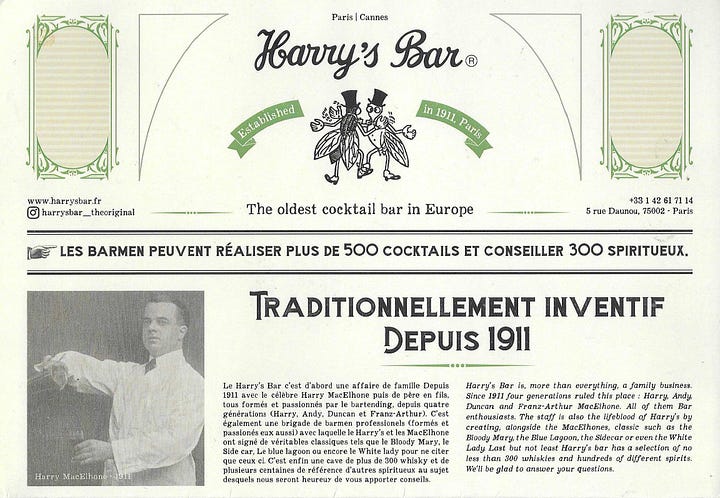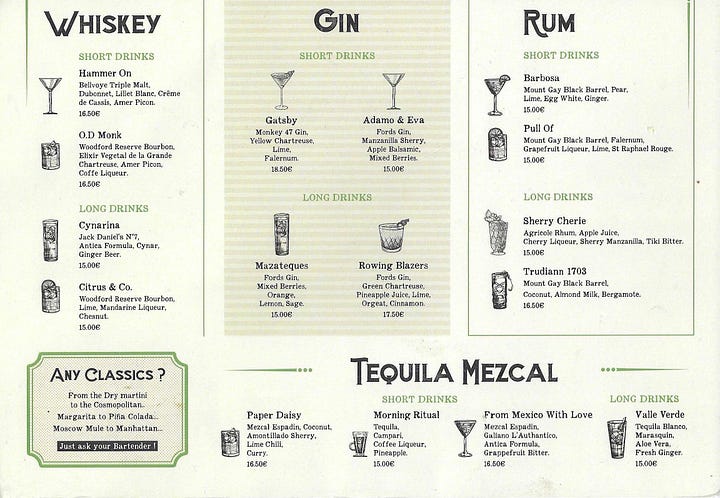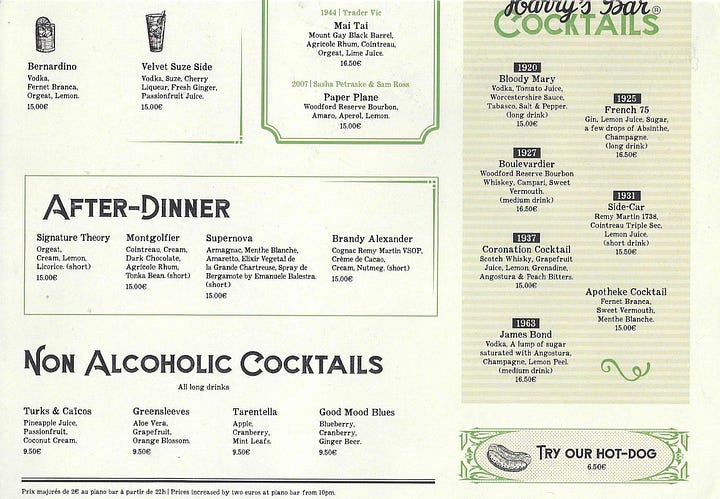The Masked Singer is so fascinating, and so layered—which I say unironically—that the only way to analyze it is to write as you watch. I, an avid watcher who does not care about the masks or the singing, am obsessed. This is merely a part 1, since I don’t want to overwhelm you. I am insane for this, but hopefully you enjoy the ride. And thanks for putting up with me.
I began writing this piece a while ago, and it’s grown over time. In that time, the show has changed in ways that aren’t obvious, but are significant to me. I think this piece is a good time capsule of TMS at its best, so I want to publish this before writing about the show as it is today. You have to understand the show’s trajectory, not just a snapshot!
For those who don’t know, I’ll get the premise out of the way: celebrities wear insane costumes and sing. Judges theoretically try to figure out who the celebrities are, based on their “clue packages” and voices, but that actually has no bearing on the show—it’s just a fun thing to do. The judges also do not impact who stays and who goes, really.
The show has gotten increasingly self-aware, and if you happen to watch it in its current state, you won’t realize just how sincere it used to be. The fifth season, which I cover here, was what I consider to be its peak. It didn’t yet know to embrace its campiness, and its bizarre special features weren’t trying to be as preposterous as possible. Now, it adds new bells and whistles each episode, and in the new format, celebrities only have to come on for one episode, so their presence has entirely different meaning. But I digress—that’s for another day.
For now, please read the following with the understanding that all of this was true. These days, the show is the TV equivalent of someone saying, “I meant to do that” when they trip, exaggerating their fall for both comedic effect and to save face. But what about those of us who thought the fall was pretty endearing? I liked when the show wasn’t trying to play up its preposterousness; it was authentically tacky, and in that way it wasn’t tacky at all.
So without further ado, I present:
The Masked Singer, Season 5, Episode 10: “The Quarter Finals – Five Fan Favorites”
The episode begins with selfie footage from the characters (celebrities) behind the scenes. They are all dressed in black jumpsuits with visor-style masks on, so that their identities remain hidden. When they speak to the cameras about what an amazing experience the show has been so far, their voices are modulated. Right away, this perfectly encapsulates the show’s most interesting element: its peculiar approach to seriousness. Despite the show’s elaborate and objectively tacky production design, the judges’ sitcommy and pre-written jokes, the absurd concept, and even the lack of a prize, TMS constantly reminds viewers just how secret the singers’ identities are. Men dressed like the Secret Service surround the singers when they move from place to place, as if a sinister fan might run onto set and yank someone’s huge, mascot-like head off.
Backup dancers wear masks, for no discernible reason other than a unified front (perhaps the show fears that, if we knew who the dancers were, we would harass them into telling us the celebrities’ identities?). And, most bizarrely, there is the Season Five addition of “Cluedle-Doo.” Cluedle-Doo, a rooster, is another masked celebrity. He is presented as a villain, showing up on screen to make vague threats about knowing Ken Jeong’s phone password (Jeong responds with broadly performed fear) and…not much else. Cluedle-Doo knows who the celebrities are, and though it’s not clear why that is such a sinister notion, the show gives him villainous music and a hacker-ish lair.
Future Eliza here with a spoiler: Cluedle-Doo is none other than judge Jenny McCarthy’s husband, Donnie Wahlberg. This is so truly bizarre. Did she not notice that he was gone and likely returning home each night covered in glittery feathers? What is the significance of Donnie Wahlberg specifically being Cluedle-Doo, other than the fact that he’s a judge’s husband? Did he come up with the idea of Cluedle-Doo? It kind of seems like it, right? He didn’t want to sing, so he came up with this odd gimmick? I’m truly stumped here.
Cluedle-Doo serves as an entry point into one of my main questions about TMS: who is its target audience? Who is genuinely worried about Cluedle-Doo? So much of the show falls in line with Jeong’s feigned terror. The panel and guest judges have indistinguishable personalities, which I can only assume is because they are following a loose script. They only stand out from one another via visual gags or not-so-subtle reminders of their career achievements (this opens a can of worms which I will save for later, the PR aspect), so who is buying their acting as real banter? Who is Nick Cannon’s “Masked Singer Mind Reader,” which shows images from “inside the celebrity’s mind,” for? Who finds the gags—Robin Thicke’s huge bucket of fried chicken as a threat to Cluedle-Doo, for example—spontaneously clever rather than entirely planned? Who doesn’t quite see that the judges are required to mention certain PR tidbits about their fellow celebrities (judges and contestants alike)? The answer is seemingly children, particularly when one considers the show’s Nickelodeon-like atmosphere. Yet it is hard to imagine that many children are huge fans of Tommy Chong, Joey Fatone, Sarah Palin (yep, and she performed “Baby Got Back”), Donny Osmond, Bob Saget, Nick Carter, Ricki Lake, Tori Spelling, La Toya Jackson, Gladys Knight, or Bret Michaels. So again, I ask, who is this for, and who is it fooling? This is not to say that there haven’t been kid-friendly contestants—Kermit the Frog (who was bastardized. His voice was nothing like the Kermit we all love), the YouTuber Ninja, Logan Paul, and Jojo Siwa—but most contestants belong to older generations.
We return to this episode, where a guest judge sits in a bedazzled, golden football helmet. Nick Cannon leads a chant of “Take! It! Off!” as the costumed star feigns difficulty taking off their mask. Ken Jeong broadly performs deep curiosity, mouth agape as he leans forward and chants. This is another mystifying aspect of the show: why lie about what the judges do and do not know, even during times when it doesn’t matter? Why can’t the judges know who their mystery colleague is? This time, it turns out to be Rob Riggle, who pretends not to remember that Ken Jeong was in The Hangover with him. Jeong performs in return, acting out—truly acting, as if in a sitcom—offense. “And you were kidding when you said you didn’t remember me initially from—that was a joke, right?” he asks. When Riggle says, “Yes, it was. It was a total joke,” his face conveys that he is “lying.” The exchange’s substance is uninteresting; what is fascinating is that we are clearly meant to perceive it as organic. It reads like a sitcom bit, so why include it at all? It is yet another example of a moment when the producers seemingly go out of their way to construct an entire world within The Masked Singer, a world in which we have no cynicism or suspicions. What’s real and what’s not?
It is a fictional show, one in which the actors play versions of themselves. In the world of TMS, every joke is funny; everyone is best friends; everyone has encyclopedic knowledge of celebrities’ careers; the show is the height of prestige; the show is an emotional experience with moving performances; the stakes are high; machines can read minds.
The show becomes all the eerier when judges must act touched, rather than ecstatic. Nicole Scherzinger pretends to cry, as she always does, cueing to the viewer that a performance was meaningful—not just for us, but for the performer as well. This tells us that the show is to be taken seriously, and therefore is an actual accomplishment for its contestants. As a result, we (theoretically) gain new artistic respect for the singer whose career needs a boost. If the show admits its own silliness, it can’t help its participants. It can’t do its job.
Ok, a note from future Eliza here! As you read the following, please remember that it was a genius point at the time but it is unfortunately outdated. The celebrities are no longer exclusively people you’d consider past their prime, really—they’re more random and beloved, like Dick Van Dyke. Often, they’re athletes or comedians who just want to have a little fun and are surprisingly good. The show goes through exponentially more celebrities now, so it’s far less of a commitment.
There is no prize because the prize is the PR, as long as all goes according to plan—hence its extremely scripted nature. The show is a stunt, which explains its outlandish production design and concept, but it still needs to maintain a façade of prestige in order to be effective. If it were to lean into itself, it would admit that its contestants are largely considered washed up, which would therefore backfire on everyone involved. TMS walks a fine line between “so silly that you just have to watch” and “so silly that it openly condemns its own contestants.” Of course, there is a different conversation to be had about how the world perceives the show’s celebrities, but the show itself is unwilling to acknowledge anything of the sort.
That’s all from me folks!
And now:
Scans of the menu from Harry’s New York Bar in Paris, which I feel very fortunate to have visited. There is a Harry’s New York Bar in NYC, but it is thoroughly different! Very very different! Unaffiliated!
Harry’s in Paris was established in 1911, and as they put it: “It is a bar literally dismantled from the 7th avenue of Manhattan…and reassembled Rue Daunou in Paris.” It is packed with collegiate flags and memorabilia and is just very fun. I nearly googled their menu to fact-check before realizing I a) have the scans on my very computer and am uploading them to this very page and b) have the physical menu, which is how I was able to scan it.
I was looking for said menu to make sure I’m correct in stating that the food options were pretty much just Hot Dog (which I love and endorse for all restaurants everywhere). I am correct! The bottom of the last page says please see our hot-dog and I think that’s just gorgeous.
For more info, please see the menu. Bon appétit!




And yes, of course I stole the menu illicitly! If any French menu detectives are reading this—I’m joking.
Love you love you, bye!



